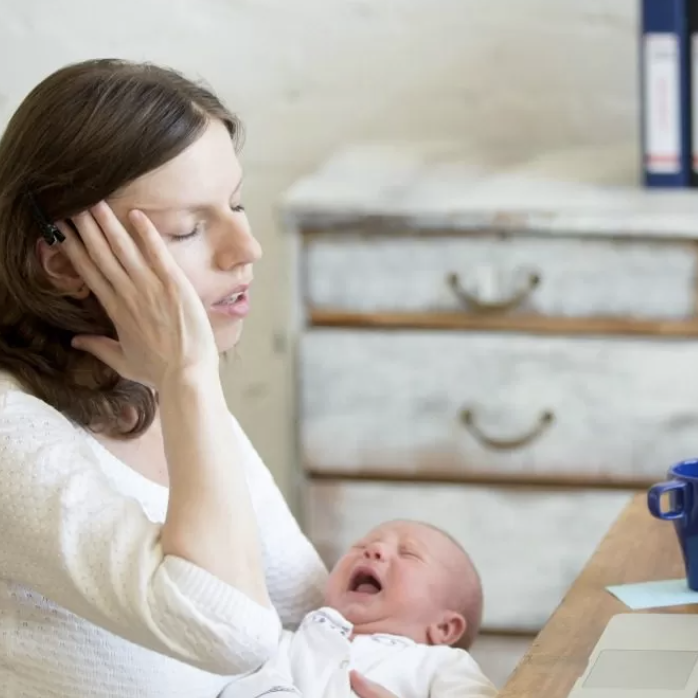While pregnancy and childbirth can be a joyful and exciting time for many women, it can also be a period of great stress, anxiety and depression. In fact, according to the World Health Organization (WHO), as many as 1 in 5 women experience a mental health disorder during pregnancy or the postpartum period. Maternal Mental Health Awareness Week is a week-long campaign dedicated to talking about mental health problems before, during and after pregnancy.
The week is all about:
- raising public and professional awareness of perinatal mental health problems
- advocating for women and families impacted by it
- changing attitudes
- helping people access the information, care and support they need to recover

What can impact Maternal Mental Health?
 There are many different factors that can contribute to maternal mental health disorders. These can include:
There are many different factors that can contribute to maternal mental health disorders. These can include:
- physical changes to the body
- hormonal fluctuations
- sleep deprivation
- the stress of caring for a newborn.
Additionally, women who have experienced trauma or who have a history of mental health disorders may be at a higher risk for developing postpartum depression or anxiety.
The impact of maternal mental health disorders can be significant, not just for the mother, but for the entire family. Mothers who experience depression or anxiety may struggle to bond with their baby or may have difficulty breastfeeding. They may also have trouble with daily activities such as cooking, cleaning, and caring for their other children. In some cases, untreated maternal mental health disorders can even lead to long-term mental health problems for the mother and child.
The signs of Maternal Mental Health Disorders
It is important for women and their loved ones to recognise the signs and symptoms of maternal mental health disorders. These can include:
- feeling sad or anxious
- having trouble sleeping
- feeling irritable or angry
- losing interest in activities
- having thoughts of harming oneself or the baby.
Women who experience any of these symptoms should seek help from a healthcare provider or mental health professional.
How to help a mum with mental health disorders?
Treatment for maternal mental health disorders can include:
- therapy
- medication
- support from family and friends.

In some cases, hospitalisation may be necessary to ensure the safety of the mother and baby. It is important for women to know that seeking treatment for maternal mental health disorders is a sign of strength, not weakness.
Meditsimple’s Centre of Excellence for Women’s Health gathers various specialists which can provide the right support and treatment, so women are able to recover and enjoy a healthy, happy postpartum period.
The Centre of Excellence for Women's HealthIn addition to seeking help for maternal mental health disorders, there are also many steps that women can take to promote their mental and emotional well-being during pregnancy and the postpartum period, like:
 getting enough sleep
getting enough sleep- eating a healthy diet
- staying physically active
- practicing self-care activities such as meditation or yoga.
In conclusion, maternal mental health is a critical issue that affects the health and well-being of mothers and their families. By raising awareness of the importance of maternal mental health and providing access to support and treatment, we can help ensure that all women have the resources they need to thrive during this important time in their lives.
Reference: https://maternalmentalhealthalliance.org/news/maternal-mental-health-awareness-week-2023/
